Anti-Japanese famous general Fang Zhenwu:Destroying the family is in trouble, and the innocent mind is galloping on the battlefield
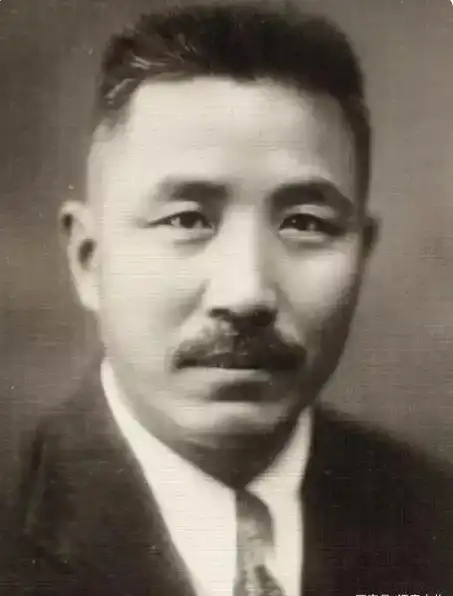
Fang Zhenwu
1933 was a time when my Chinese nation suffered a severe disaster. During the Mid-Autumn Festival in October, the cold wind is blowing outside the Great Wall and fallen leaves are falling. On the Baihe River in the north of Chahar, there is a team of the Chasui People's Anti-Japanese Alliance Army rushing in the direction of Dushikou. They were "convicted" for resisting Japan and were transferred here under the heavy "crusade" of Chiang's army. At this time, the roar of aircraft in the sky and a team of Japanese aircraft flew over. The strange thing was that they did not fire bombs, but dropped a bundle of cakes, meat and fruits, with a letter attached, which read:In the name of resisting Japan, you oppose Chiang in reality. We fully understand and hope that you will accept the reorganization of the imperial army and deliver food, ammunition, and equipment immediately. After reading the letter, a general who led the team was furious and said through gritted teeth:We wanted Chiang because he did not resist Japan, and we wanted Chiang to resist Japan. These bandits wanted us to become traitors. They were really blind. After saying that, he tore the letter into pieces and ordered the adjutant to throw all the food into Baihe. He gathered his troops and shouted loudly:We must resolutely resist Japan to the end, preserve the great mountains and rivers left behind by our ancestors, and we must survive and struggle endlessly! The nation is upright and inviolable. This general is General Fang Zhenwu, who led the Chasui People's Anti-Japanese Alliance Army together with Generals Feng Yuxiang and Ji Hongchang.
With a pure heart, galloping on the battlefield
Fang Zhenwu's patriotism began to sprout as early as his adolescence. He was born in 1885 into a patriotic family in Wabu Town, Shouzhou (Jinshou County), Anhui Province. Fang Juesheng, his great-great Before the Revolution of 1911, he read many revolutionary books and periodicals, which made the blood of this young man with an innocent heart boiling. He is deeply worried about the backwardness of the motherland and is willing to fight bravely for the rejuvenation of China. He joined the alliance led by Sun Yat-sen and braved the risk of beheading to participate in the Ma Guang Camp uprising led by Xiong Chengji in Anqing in 1908. Although the uprising was brutally suppressed by the Qing army and Fang Zhenwu was arrested and sent to prison, it shocked the shaky reactionary rule of the Qing Dynasty. After the Wuchang uprising broke out in 1911, Fang Zhenwu fought a bloody battle with the Qing army in the fierce battle to restore Nanjing. In the Battle of Yuan in 1913, he led a battalion with several times his own enemy forces in Xuzhou for seven days and nights. He was shot several times, stained with blood, and still persisted in directing the battle, showing his heroic and tenacious spirit. After the defeat of Yuan, he traveled to Japan to study military affairs in Shangwu School and joined the Revolutionary Party of China. After returning to China, he served as commander of the Marine Corps at the Grand Marshal House led by Sun Yat-sen in Guangdong.
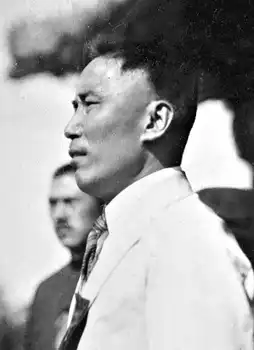
Fang Zhenwu attended the Anti-Japanese Alliance Conference
In the 1920s, Fang Zhenwu fought hard against the new and old warlords. He once served in Zhang Zongchang's army. He witnessed the deterioration of military discipline in the warlord troops and brought disaster to the country and the people. He felt deeply about the need to eradicate the warlords. In January 1926, he resolutely led his troops and joined the National Army led by General Feng Yuxiang, serving as the commander of the 5th Army. In the autumn of 1926, he participated in the famous Wuyuan oath led by Feng Yuxiang, sent troops to Tongguan, and jointly carried out the Northern Expedition with the Kuomintang troops in Guangzhou. He wholeheartedly supported cooperation between the Kuomintang and the Communist Party, sincerely cooperated with the Communist Party cadres and Soviet advisers sent to the Fifth National Army, and relied on them to serve as the backbone of the army. With the help of the Communists, the 5th Army had strict discipline and strong combat effectiveness. Wherever the soldiers pointed at, the warlord troops were invincible. The Zhensong Army, which was defeated by Wu Peifu's Liu Zhenhua in Monkey Village, lifted the eight-month siege of the National Army Yang Hucheng's troops in Xi'an, and made outstanding military achievements.
After 1927, Fang Zhenwu's headquarters were reorganized by the Wuhan government and successively served as commander-in-chief of the 9th Front Army and commander-in-chief of the 4th Corps of the 1st Group Army. At this time, he gradually recognized Chiang Kai-shek's betrayal of revolution and dictatorship, and actively contacted various forces to carry out anti-Chiang activities. In May 1929, Fang Zhenwu became chairman of the Kuomintang's Anhui Province. He was just trying to eliminate his old shortcomings and build his hometown well, but his anti-Chiang activities were discovered by Chiang's party. Therefore, after four months in office, he was lured to Nanjing and placed under house arrest. Later, he was imprisoned in Tangshan Army Prison until after the "September 18th Incident." In prison, he was handcuffed and shackled, tortured and killed several times. But he was unwavering, persisted in the struggle, and did not hesitate.
Destroyed the family and became in trouble, and marched to southern Shanxi
After the "September 18th Incident", the iron feet of the Japanese invaders became deeper and deeper, and the national crisis became increasingly serious. After Fang Zhenwu was released from prison, he went everywhere to promote anti-Japanese aggression. At the beginning of 1933, the Japanese army invaded Jeho and forcibly occupied the entrances of the Great Wall. The gateway to North China was opened, and Pingjin was in danger. He wrote to his former subordinates resolutely saying:At the critical moment of life and death of the country, I was "determined to destroy my family and overcome difficulties and resist Japan and save the country." He sold his house and property and raised 100,000 yuan to fund military expenditures, demonstrating this patriotic general's noble feelings of destroying his family and serving the country. He shaved off his beard, changed into casual clothes, and secretly came to Jiexiu, Shanxi with his trusted subordinates. Here are his former divisions, Bao Gang and Zhang Renjie. After he arrived, he convened a meeting with Bao and Zhang Kai and agreed to establish the Anti-Japanese National Salvation Army.
On March 1, a swearing-in meeting was held in the south of Jiexiu. It was snowing heavily and the cold wind was biting. In addition to the troops, people from all walks of life in local industry, agriculture, commerce and education attended the conference. General Fang Zhenwu delivered an impassioned speech at the meeting, expressing his determination to resist the war to the end. The meeting announced the establishment of the Anti-Japanese National Salvation Army, with General Fang as commander-in-chief. The telegram sent by the conference said:"Zhenwu has been a soldier for half his life and is obsessed with revolution. He has put life and death aside, so how can he keep his rights in his heart?""The day he is ordered is the time to sacrifice his life to the country.""The purpose is to dispel the violent day and the duty is to recover the country.","Broken bones and bodies, without hesitation, success or failure, and no matter what." Although the weather was cold that day, these sonorous words full of patriotic enthusiasm made the hearts of the attendees boil, and the thunderous slogan of "Unite, Resist Japan and Save the Country" broke out from time to time in the venue.
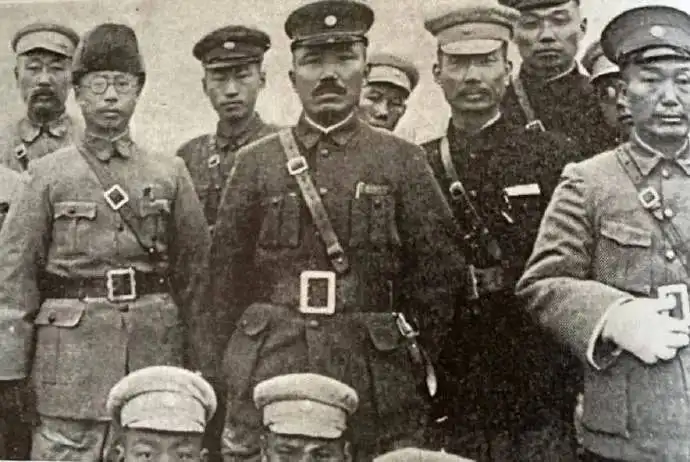
In May 1933, General Fang Zhenwu (the one in the middle of the photo) took a group photo with his subordinates of the Chasui People's Anti-Japanese Alliance Army
After the swearing-in meeting, Fang Zhenwu led his team north to resist Japan. After Chiang Kai-shek and He Yingqin learned of this, they did everything possible to stop them. When the troops arrived in Dingxian County, He Yingqin, then director of the Kuomintang's Peking camp, sent Gao Shen Sizong to seek an audience. After saying nonsense such as "The central government has its own plans for anti-Japanese affairs and cannot act too hastily", he revealed He Yingqin's trump card in inviting Fang Zhenwu to Peiping to take over the post of commander. The more Fang Zhenwu listened, the angrier he became, and his face blushed. He stood up hurriedly and said flatly:"Please reply to Director He and say that I, Fang Zhenwu, appreciate it. But I have made up my mind to go north to resist Japan. I, Fang Zhenwu, will spend all my blood on the anti-Japanese battlefield." So he continued to lead his troops north. When He Yingqin saw the situation, he mobilized heavy troops to intercept him, but was beaten to death by the Fang troops. On May 10, Fang Zhenwu sent a telegram on the way to the march, and once again firmly stated that "I would rather be a ghost killed in battle than a slave to the country. Be loyal and foolish to protect the sun." In order to get rid of the obstruction of Jiang's army, Fang Zhenwu led his troops on the Ancient Great Wall Road, climbing mountains and ridges, which was quite difficult. He also passed through some famous dangerous places in history such as Wufengdong Tunnel and Daomaguan. The roads in these places are rugged, making it difficult for people to travel, and the transportation of food and machinery is particularly difficult. However, the morale of the troops was high and the troops marched quickly. People from all over the country took the initiative to set up support bureaus to cook tea and rice, arrange camping, and many poor farmers and young students actively joined the army, reflecting that this anti-Japanese team is deeply supported by the people. When the troops crossed the Laiyuan River Valley, crossed the natural dangers of Daomaguan and Feigukou, and reached the plains, their vision was wide and the cheers were thunderous. Fang Bu Yu Xingren once wrote a poem to record:"The horse in Daoma Pass is easy to fall, but it is difficult to fly alone in the mouth. The righteous army escaped from danger and the sky is wide, and the good news is frequent." In late May, Fangbu arrived in Xuanhua area of Chasha Province.
On May 26, Feng Yuxiang established the Chasui Anti-Japanese Alliance Army by electricity in Zhangjiakou and appointed himself as commander-in-chief. made it clear:"We cannot survive without resisting Japan, and we cannot recover lost territory without iron and blood." "I hope that the people of the whole country will rise up together to drive out the powerful bandits, ensure the survival of the nation, and restore territorial integrity." Fang Zhenwu immediately responded by power on:"Zhenwu is not agile, but he leads tens of thousands of athletes to wholeheartedly support us, cultivate our swords and annihilate the cruelty of the enemy. Victory is a brigade of Shaokang, and defeat is Tian Heng's five hundred." He made a generous speech, and his patriotic enthusiasm was evident in his words. After delivering a touching and tear-jerking speech at a mass meeting held in Xuanhua, he excitedly bit his middle finger and wrote the eight bloody words "I am invincible, there is no enemy but I" on a white cloth, which effectively inspired the anti-Japanese fighting spirit of the vast number of soldiers and civilians. The slogans of "Down with Japanese imperialism" and "Give me back the great rivers and mountains" shook the earth and made the mountains and rivers strong.
Fight fiercely outside the Great Wall and severely injure the enemy
Fang Zhenwu led the Anti-Japanese National Salvation Army to Zhangjiakou at the end of May 1933. Feng Yuxiang personally led a group of military and political officials, such as Tong Linge, Ji Hongchang, Xuan Xiafu, Zhang Yunrong, etc., stepped out of the suburbs to welcome him. On the Zhangjiakou Tower, the flags of the People's Anti-Japanese Alliance Army and the Anti-Japanese National Salvation Army are flying high. Anti-Japanese soldiers and intellectuals from all over the country are coming in one after another, and the lineup is expanding day by day. It is really prosperous for a time. At that time, in addition to the Anti-Japanese National Salvation Army, there were also generals Deng Wen, Li Zhongyi, Liu Zhendong, etc. in Northeast China, Jehol and other places, as well as troops who retreated from Jehol to Chad Province, local armed police in Chad Province, etc., and the Alliance Army quickly grew to more than 80,000 people. In those days when the spring breeze had not subsided and the summer rain had come early, Feng Yuxiang took the lead in shouting slogans every time the military parade was military parade, and Fang Zhenwu and his subordinates responded unanimously. The slogan of "Resist the ferocious Japanese at home, eliminate the national thieves at home" resounded through the sky, and morale was extremely high.
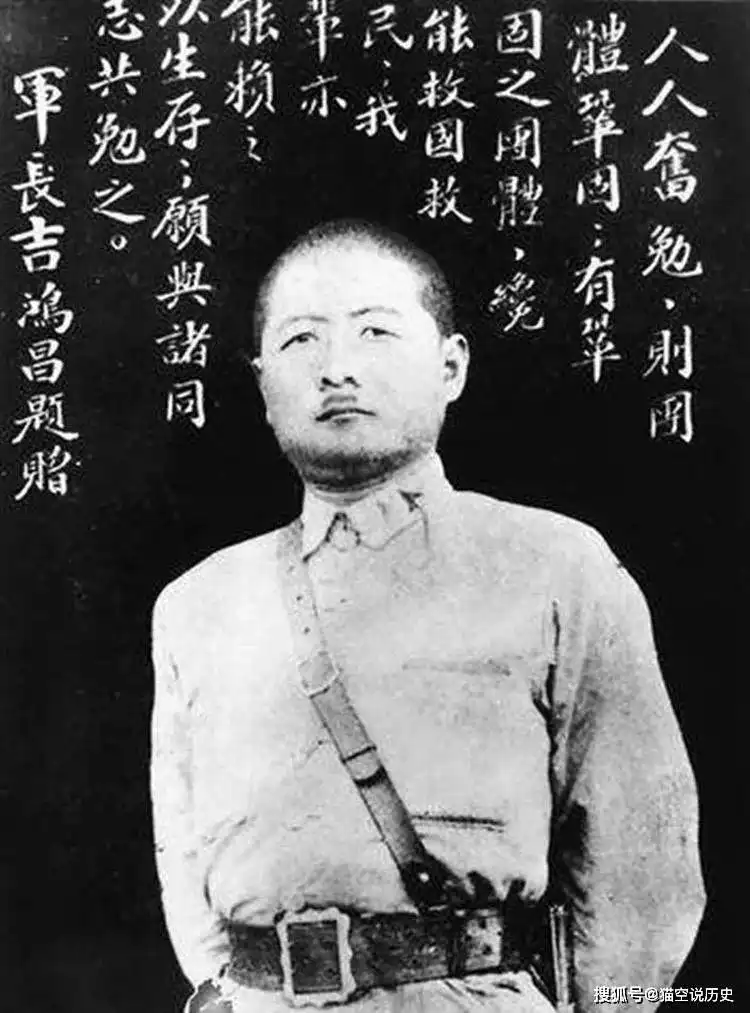
Patriotic general Ji Hongchang
In mid-June, the First Congress of the Allied Forces held in Zhangjiakou announced the establishment of a Military Committee and elected 11 members, including Feng Yuxiang, Fang Zhenwu, Ji Hongchang, Sun Liangcheng, and Xuan Xiafu, as members of the Standing Committee. On June 20, Ji Hongchang was appointed commander-in-chief of the former enemy on North Road, and on June 22, Fang Zhenwu was appointed commander-in-chief of the former enemy on North Road.
At this time, the Japanese invaders were stepping up their attacks on the Chabei area. Japanese aircraft bombed Dushikou. The Japanese army successively captured Baochang and Kangbao, in an attempt to advance Zhangjiakou via Zhangbei. The Anti-Japanese Allied Army decided to attack the Japanese invaders head-on. On June 20, Fang Zhenwu, Ji Hongchang and other generals led their troops to march north with their swords. Under the conditions of crude weapons and insufficient supplies, the allied forces recovered Kangbao on the 22nd, conquered Baochang and Guyuan again on July 1, and connected the three cities, greatly increasing their prestige. From July 7 to 12, the vanguard troops of the Allied Army commanded by Generals Fang Zhenwu and Ji Hongchang braved the enemy's intensive artillery fire and fought bloody battles to recover Duolun, the important town of northern Chad, and expelled all Japanese and puppet troops from outside the province. A glorious page was written in the history of the Anti-Japanese War. This earth-shaking good news greatly inspired the national spirit and enhanced people's belief in victory in the War of Resistance. The people of the whole country were overjoyed. Groups and individuals from Shanghai, Peiping, Tianjin and many provinces exchanged letters and telegrams, exchanged praise, and competed to donate money and property, expressing their willingness to be a strong backing for the allied forces.
However, the Kuomintang government headed by Chiang Kai-shek tried its best to obstruct and undermine the activities of the Anti-Japanese Allied Forces. On the charges of "obstructing the unification of central government decrees" and "undermining the entire national policy," they mobilized 16 divisions of troops to comprehensively blockade the anti-Japanese Afghan allied forces, and negotiated plans with the Japanese army to coordinate with the allied forces. At the same time, they used high-ranking officials and generous salaries as bait to bribe the unstable elements in the allied forces. Under the attack of Japan and Chiang Kai-shek, the allied forces were in a difficult situation. Under this situation, Feng Yuxiang was forced to go wild on August 5, leaving Zhang Yuan, and retiring from Mount Tai.
Don't fall the flag of righteousness and persist in fighting hard
After Feng Yuxiang was forced to leave Zhang Yuanxiao, Fang Zhenwu, Ji Hongchang and some patriotic generals resolutely refused to withdraw their alliance or lower their flags, saying that they would fight to the death to the end. They accepted the suggestion of the former Committee of the Communist Party of China's Chahar Committee and transferred the troops of Fang and Kyrgyzstan and the teams willing to continue to resist Japan to Zhangbei. On August 16, Fang Zhenwu sent a telegram to act as the commander-in-chief of the People's Anti-Japanese Alliance. As early as before Feng Yuxiang left Zhang Yuan, at a meeting to discuss and decide on the issue of whether or not the war should remain, Fang Zhenwu took a clear-cut stand on his idea of continuing to resist Japan and Chiang Kai-shek. He said:"We want to resist Japan and Chiang Kai-shek. When the Japanese army comes, we will resist Japan. When Chiang comes, we will attack Chiang. We would rather be crushed than destroyed. We have no other way out." After the meeting, Fang Zhenwu, Ji Hongchang and other patriotic generals sent another telegram. generous speech:"When Zhenwu and other four provinces fell, there was no thought of stealing their lives again. Where justice lies, we must never refuse to die in a glorious death, and be willing to die in a glorious death."" With only one last shot left, we will also sacrifice ourselves for the resistance to Japan."" Wealth and wealth are not obscene, and we will be unyielding. Wherever we are in danger, we can help each other, recognize enemies and friends, distinguish right from wrong, avenge the country, and strive for survival for the nation." These loud and loud oaths from the hearts of patriotic anti-Japanese generals reflect their noble patriotic sentiments of fighting to the death to the end and effectively inspire national integrity.
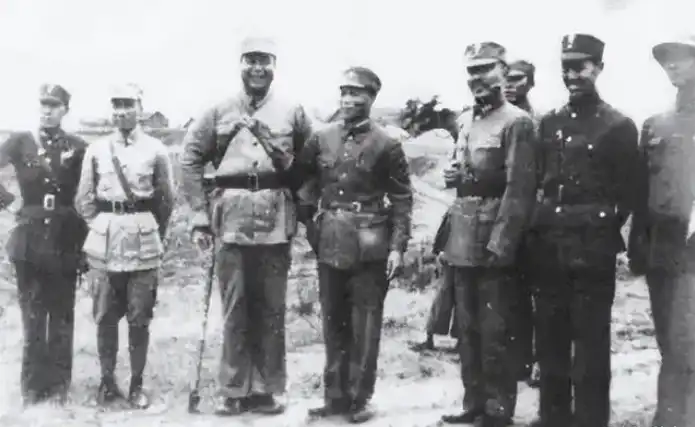
In 1938, Fang Zhenwu (third from right) and Feng Yuxiang were in Huangchuan, Henan Province
Not long after Fang and Ji's troops moved to Zhangbei, they moved eastward to Dushikou and rushed to the front line of anti-Japanese aggression. Here, they felt that Chiang's army, which had been chasing after them, had become the main obstacle to their anti-Japanese war, so they decided to change the flag of the "Anti-Japanese Alliance Army" to the "Anti-Japanese Army to Combat Thieves." Fang Zhenwu was appointed commander-in-chief and divided his troops into three routes, pointing south to Peiping to combat the fierce flames of Chiang's army. At the same time, they planned to attack Peiping as an anti-Japanese base. At the end of August, they recovered Fengning. In early September, he left the mouth of Malanyu and headed south to surprise Peiping. After marching for three or four days, they defeated the resisting enemy at Changping County Industrial Cloth Factory and Dongshankou, and continued to march south on a starry night. They encountered heavy interception by Jiang's army in Shahe Town. The anti-Japanese rebel army then turned eastward and occupied Daxiao Tangshan, north of Peiping. After a short rest, they continued to advance south to Niulanshan on the east bank of the Chaohe River. Jiang's army also arrived on the west bank of the Chaohe River in large numbers to set up defenses. The two sides faced each other across the river. At this time, the anti-Japanese anti-rebel troops had gradually fallen into a state of being surrounded on all sides:On the east, west and south are Chiang's troops, and on the north are the Japanese troops. Japanese aircraft continued to bombard them indiscriminately, and Chiang's army also continued to attack. The Anti-Japanese Army suffered heavy casualties. Once, the 25th Division of the Chiang Army concentrated its superior forces and broke into the position of the Anti-Japanese Army. In an extremely critical moment, Generals Fang and Ji personally led the guard company into the battle, took the lead and took the lead in the charge. The morale of the Anti-Japanese Army was greatly boosted and the enemy was greatly damaged. At this time, although the anti-Japanese rebel troops were surrounded on all sides near the enemy's nest, they still persisted in the struggle for nearly a month and constantly sent small teams to carry out harassing attacks on the enemy. This was what the Kuomintang newspapers at that time called the "Fangji Rebellion" in the Peiping area.
During the days when the Anti-Japanese rebels were besieged, one day the Japanese army that occupied Gubeikou sent a senior officer to the headquarters to seek an audience with the commander-in-chief. General Fang Zhenwu, dressed in a general's military uniform, sat in the lobby with his head held high. The senior officer's attitude was extremely arrogant. General Fang's eyes were bright and he asked sternly:"Are you a soldier? The Japanese army adheres to class obedience. I am a general and you are a major officer. Why don't you bow when you see me?" After hearing this, the senior officer quickly raised his hand and saluted. General Fang inquired about his purpose, and he said:"You did a good job in attacking Chiang's army. We are willing to help you. As long as you continue to fight, we can provide whatever you need." When Fang Zhenwu heard this, he was furious and said loudly:"To tell you the truth, our anti-Japanese army first and foremost fought against Japan. It was precisely to resist Japan. What relief do we need from you? Prepare to be beaten!" The captain rushed away.
Due to the encirclement on all sides, the situation of the anti-Japanese and anti-rebel troops was very difficult. Under these circumstances, Generals Fang and Ji often talked with their subordinates to express their firm determination to resist Japan:"We lived for the resistance to Japan, and we are determined to die for the resistance to Japan... Our long-term proposition of resisting Japan and saving the country will never be changed due to any difficulty, which will tarnish the national tradition and personal character." All listeners were moved by it.
In the end, the anti-Japanese army ran out of ammunition and food, and the troops besieged by Japan and Chiang Kai-shek gradually pressed into the valley. Generals Fang and Ji could not bear to bear the unnecessary sacrifices of their anti-Japanese soldiers, and decided to accept the initiative of the eight major groups in Peking and hold peace talks with Chiang's army. At that time, Chiang agreed to ensure the safety of Fang and Kyrgyzstan's lives, and the army was reorganized from Chiang's army. But it was actually a scam. When the anti-Japanese rebels laid down their arms and Fang and Ji arrived at Chiang's army station in Niulanshan, they were detained and escorted to Peking in a car, ready to kill them.
Escape from the tiger's mouth and resist Japan to the end
When the motorcade escorting the "high-priority criminals" was on their way from the Chiang military station in Niulanshan to Peiping, thanks to the secret help of Shang Zhen, commander of the 32nd Kuomintang Army, Generals Fang and Ji took advantage of the dim sky to get out of the car on the pretext of "relieving urinating" and escaped into the buckwheat fields. The escorting soldiers pretended not to know. After Fang Zhenwu escaped from the tiger's mouth, he hurried south. At about 8 p.m., he arrived at a village in the northeast of Tongzhou and saw a house still lit. He knocked on the door and entered. The person who opened the door was an old man who told him truthfully that he was Fang Zhenwu from the Anti-Japanese Alliance. Because he had committed a "crime" in the War of Resistance, Chiang Kai-shek wanted to arrest him, hoping that the old man could save him and help him reach Tianjin. After hearing this, the old man fully agreed and quickly asked his family to make a fire to cook. He said to the general:"you are all in favor of the anti-Japanese people, and there are also young people in our village who join the Confederate forces. I must protect you and send you to Tianjin." At this moment, the edge of the village was brightly lit and there was a lot of noise. It turned out that when he Yingqin knew that Fang and Ji had escaped, he was so angry that he ordered the passageways to be blocked and sent a brigade to search from village to village in the area. As soon as the old man hid General Fang in the cellar under the firewood pile, the searching soldiers broke through the door, shouted whether there were deserters who had seen Fang and Ji, and threatened that "harboring routed soldiers is against the law and is to be beheaded." The old man dealt with it quietly. After the search soldiers were far away, they invited Fang to come out for dinner and arrange accommodation. The next morning, the old man loaded a truckload of vegetables and asked Fang to disguise himself as a peasant and take a car together, bypassing Tongzhou along the path, all the way to Tianjin. The old man risked his life to save the general, reflecting the deep support and love of the anti-Japanese allied forces. After arriving in Tianjin, Fang stayed at Xu Qian's residence for three days, and then Xu bought a ticket for Fang to leave Hong Kong on the steamer Queen of Italy, and then went into exile in London, England, Venice, Italy and other places.
During his exile overseas, Fang Zhenwu continued to carry out anti-Japanese and national salvation activities. for example:In 1936, he initiated the organization of the Anti-Japanese National Liberation Alliance in Paris, France, with more than 300 overseas Chinese and overseas students participating in it, and founded the publication "National Recognition" to promote anti-Japanese and national salvation. Fang Zhenwu wrote a paper in the first issue, titled "The Hub for Solving the Current Crisis", with the subtitle of "Stop Suppression of the Communist Party and Unite Anti-Japanese", clearly stating the correct proposition that "there is no way to survive without resisting Japan, and no way to resist Japan without cooperation." He also used his influence to raise funds overseas to fund the motherland's anti-Japanese and national salvation activities.
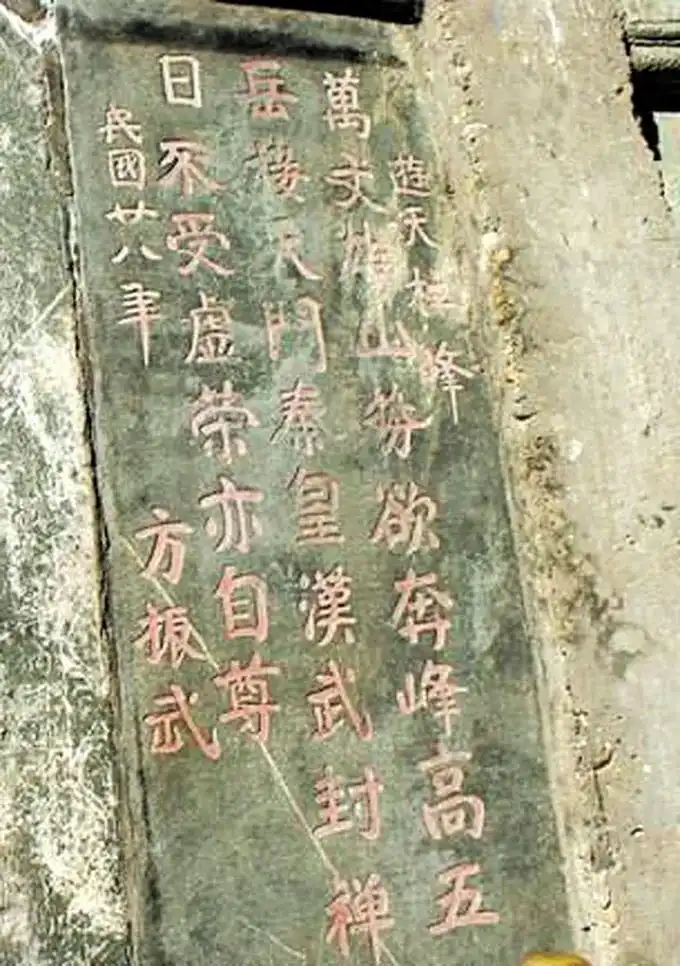
Fang Zhenwu wrote a poem in Wudang Mountain to express his ambition
During this period, he also took advantage of his extensive contacts abroad to carefully inspect the political and economic conditions of societies in various countries, and wrote many books in connection with the situation in China to explore ways to save the country and the people. The bibliographies that have been discovered now include "The Transformation and Construction of China's National Economy","Yu's View of China","Post-War China","Plans for Professional Democratic Politics", and "Collection of Zhenwu's Speech". Some of these views are very clear, such as his opinion:"In addition to the exploitation of feudal remnants and comprador classes within China, China is also exploited by capitalist imperialism. Under this double oppression, the national economy has no choice but to become a subcolony.""After China breaks away from the shackles of subcolonies, it will surely gradually move towards prosperity." He also believed that "China is originally a country based on agriculture, and agriculture, the foundation of the economy, should not be ignored." He should "proceed from this basis and further promote industry, industrialize China's rural areas, and spread industrial construction in accordance with economic differentiation and spread it across the vast rural areas of China.""This kind of construction work can have happy results." These propositions were clearly put forward as early as the 1930s, proving General Fang's foresight.
After the July 7th Incident, Fang Zhenwu returned to the motherland and hoped to return to the anti-Japanese battlefield. However, the hero had no place to use himself and was not tolerated by the authorities. He saw the smoke everywhere and the land of China being trampled on by enemies and bandits, and his heart was filled with anxiety and pain. With no hope of participating in the anti-Japanese war, he left the mainland with grief and left for Hong Kong again, continuing to spare no effort to carry out anti-Japanese and national salvation activities. In December 1941, on the eve of the fall of Hong Kong, he also invited overseas Chinese and Hong Kong celebrities who stayed in Hong Kong to gather at the Kowloon Tong Club to show a film containing Sun Yat-sen's appointment as Grand Marshal and instigating the Northern Expedition. Fang Zhenwu gave a speech that inspired the national spirit. On the 9th, when the Japanese army invaded Hong Kong, they were preparing to return to the mainland and rush to the anti-Japanese battlefield. However, as soon as they entered Zhongshan, Guangdong Province, they were assassinated. This powerful national hero who rode on the battlefield passed away.
copyright notice:This article was published in the 3rd issue of Military Digest in 2024. The author: Huang Zongci, if you need to reprint it, please be sure to indicate "Transferred from Military Digest".
attention to our

